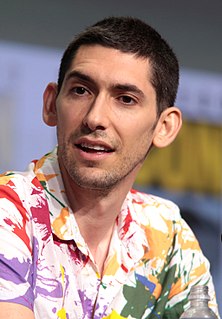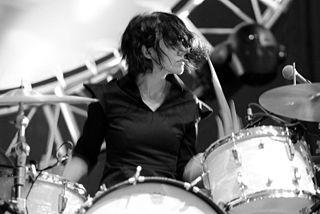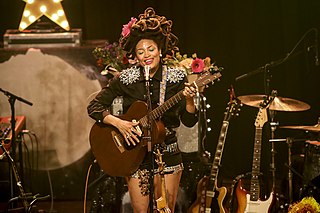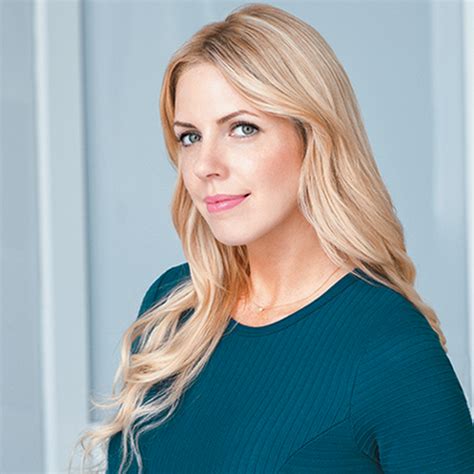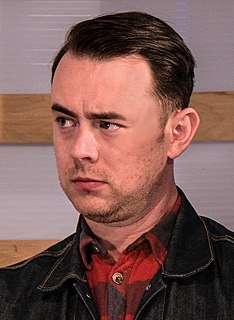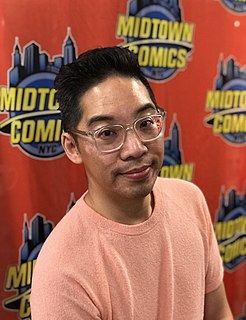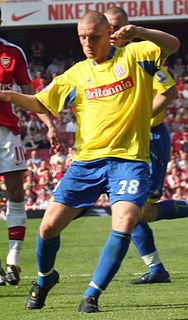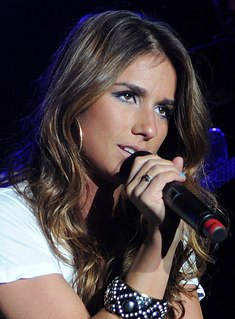A Quote by Max Landis
Every story I write is different. Some are hard. Some aren't. 'Chronicle' was tremendously easy. I have a hard time comparing my process on different things, but I will say this: The more you write, the better you get at it. That's one of the few things that's markedly true.
Related Quotes
Writing is a weird thing because we can read, we know how to write a sentence. It's not like a trumpet where you have to get some skill before you can even produce a sound. It's misleading because it's hard to make stories. It seems like it should be easy to do but it's not. The more you write, the better you're going to get. Write and write and write. Try not to be hard on yourself.
We who make stories know that we tell lies for a living. But they are good lies that say true things, and we owe it to our readers to build them as best we can. Because somewhere out there is someone who needs that story. Someone who will grow up with a different landscape, who without that story will be a different person. And who with that story may have hope, or wisdom, or kindness, or comfort. And that is why we write.
I fundamentally believe that no one can teach you how to write - finding out how to write a story is part of the process of creating a story - but you can really learn through exposure to different writing, to different art forms, to different modes of storytelling, and with mentors who are able to get you to step outside your comfort zone.
We, Autolux band, write in very different ways; sometimes we play with the band and write music first and then form vocal parts and lyrics. Or I'll find some music, or a guitar part or something, and I'll just write an entire sketch of an idea from that. So I think things have always been that way, it's just that this time around we had some more obstacles off and on all the time.
Everyone tells you to write what you know. It’s the tried-and-true advice every writer hears at some point in her career. But to take my writing to a deeper level, I’ve found that a better practice is to simply write what frightens you, haunts you, even. I now keep a sign on the bulletin board in my office that reads: 'Write What Scares You.' I’ve learned that tapping into the hard stuff — whether it’s the fear of loss or a boogeyman lurking in childhood memories — is what ultimately gives a story the power to leap off the page and grab you by the collar.
Each one is different. Each project is different. Some are silly, some are not. Some are more realistic, some are not. Some are overly dramatic, some are not. You've just got to try and find the thing that's most engaging and entertaining in whatever way, shape or form, and it's different every time.
I suppose we think euphemistically that all writers write because they have something to say that is truthful and honest and pointed and important. And I suppose I subscribe to that, too. But God knows when I look back over thirty years of professional writing, I'm hard-pressed to come up with anything that's important. Some things are literate, some things are interesting, some things are classy, but very damn little is important.
Each book requires a different look. Sometimes I get to take a personal direction that's appropriate for the story. I try to push things within a range. Some are rougher, some more expressionistic, some are slicker graphically and call for a prettier drawing style that I can do. Some have a more classical vibe, and some are in between.
Prisoners do different things. Some write, some read. Some engage in athletic events and working out and some do all of that. Some get involved in the religious groups that they're part of. Some get involved in hobbies that are permitted in prison. There are plenty of ways to stay busy. You're never going to survive in prison unless you start getting busy.
